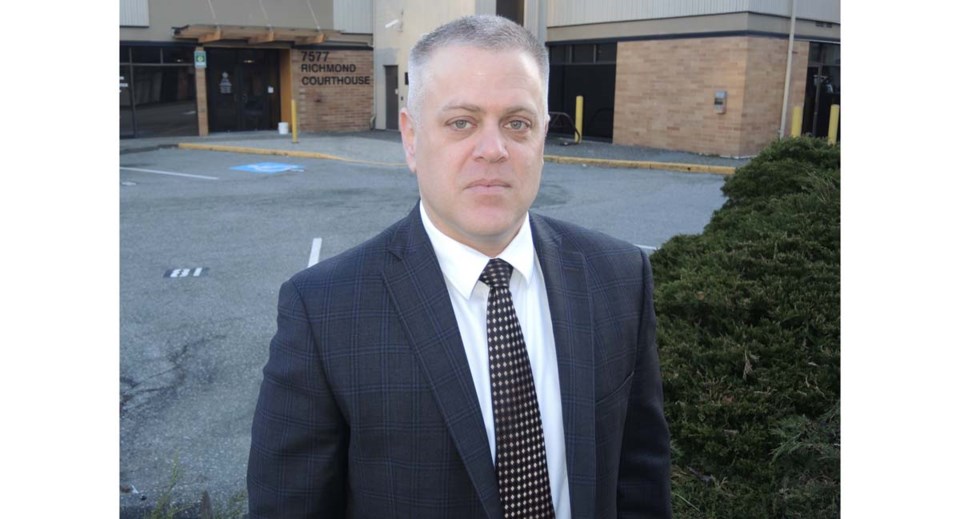If you thought B.C.’s justice system was painfully slow already, a Richmond lawyer is warning it’s about to get a whole lot more pedestrian.
In less than two weeks, almost 600 lawyers, including Jason Tarnow, will kick off indefinite job action, withdrawing their services from the daily duty counsel roster in courts across the province.
A fortnight after that, on April 15, the same army of attorneys – who’re members of the Association of Legal Aid Lawyers (A.L.L.) – will escalate the dispute with the province by completely withdrawing from legal aid contracts.
The lawyers are demanding the B.C. government expand the reach of legal aid and boost rates for their services, which haven’t changed in more than 20 years.
And, according to criminal defence lawyer Tarnow, it won’t just be those appearing from custody and those seeking help with a family matter in the civil court that will suffer from the job action.
“Those that come to the courthouse for a family matter or a criminal matter…they might be looking for the courthouse lawyer for the day, there’s not going to be one,” said Tarnow, who has been practicing since 2008, of withdrawing his services from the rotation from being one of two counsel on duty each day.
“And that doesn’t matter if they’re in custody or not, they’re going to have to deal with it themselves.
“The legal aid system is broken. The most vulnerable people in our society are left representing themselves in family and criminal matters.
“When that happens, there are ripple effects, it slows everything down and delays everything. The court has to take a lot more time, explaining the procedure, explaining the law. It’s a travesty. Families are torn apart.”
Tarnow said the A.L.L. tried similar, but softer, job action five or six years ago when lawyers withdrew duty counsel services on certain days of the week.
“Now we have close to 100 per cent of the lawyers, who carry out legal aid work, on board with this. Before, it was somewhat divided,” added Tarnow of the job action coming up.
He said the same issue has come up every single year for the last two decades, with the vicious cycle of more people being denied access to legal aid representation – due to tightening qualification rules - and less lawyers offering their services to the program due to the low fees.
“There is a growing number of lawyers who don’t accept legal aid work and that’s one of the problems; they realize they can’t keep an office open and can’t do their job properly, because they’re not paid enough to work on a file properly,” explained Tarnow.
“It’s a disservice to the people that are seeking legal aid assistance. It had deteriorated each year and it’s extremely difficult for people to qualify for legal aid.
“It seems to get tougher and tougher for people to get representation, more people are doing it themselves and more people are suffering an injustice.”
Tarnow said A.L.L.’s primary objective of the job action is to “broaden the parameter for people to qualify for legal aid; this is an access to justice issue.”
As for the response each year from various provincial governments, Tarnow laments that it has never been “high on their property list.”
“For whatever reason, properly funding legal aid is not politically attractive, not for the Liberals when they were in power and not the NDP,” he said.
“It seems to be down the totem pole of priorities.”
A spokesperson for the B.C. Attorney General’s office told the Richmond News that “The ministry is continuing to have discussions with A.L.L. about their proposal.”



